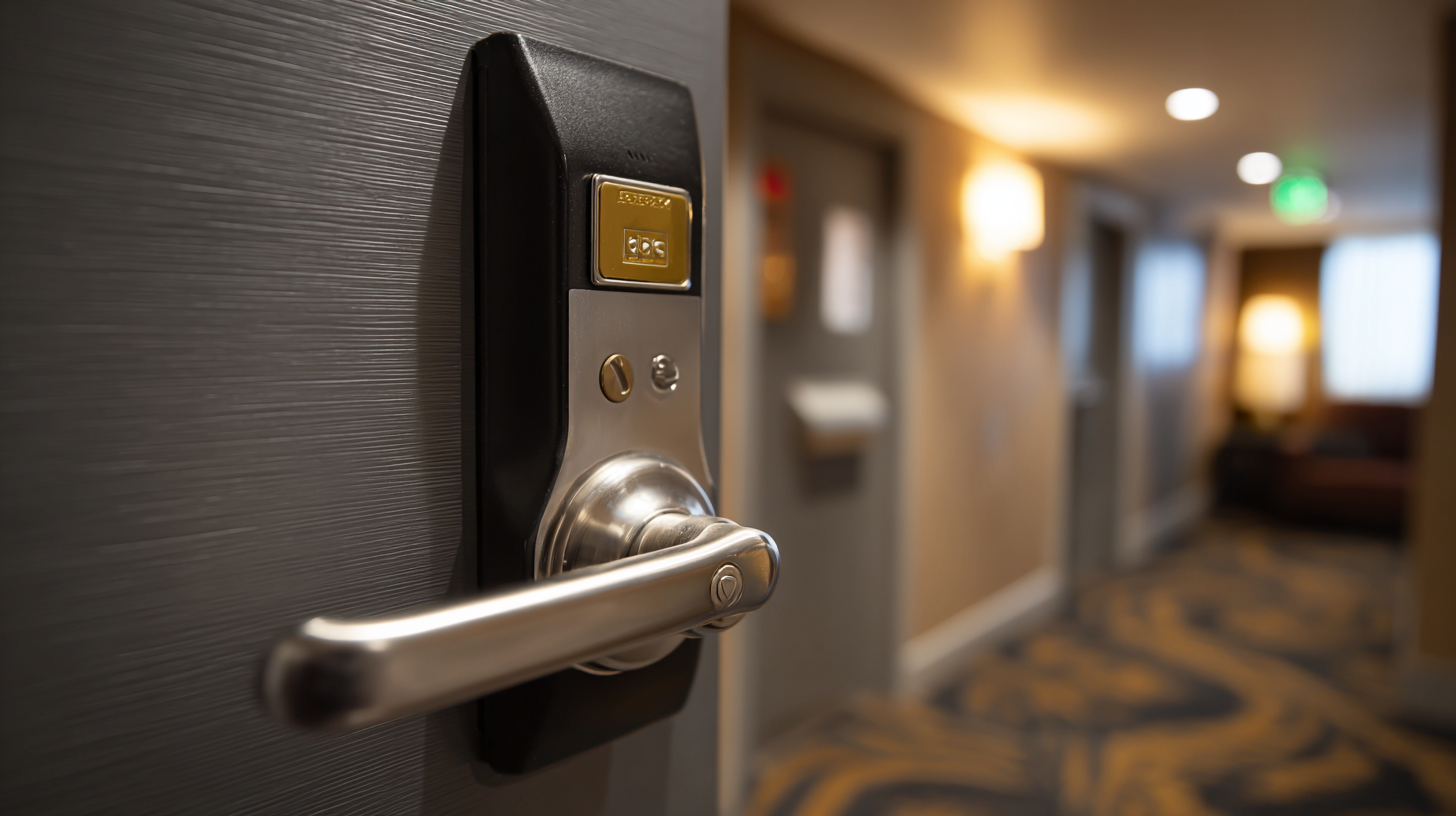How to Choose Quality Manufacturers for the Best Access Control Systems: Key Factors & Insights
Selecting the right manufacturers for Access Control Systems is a crucial decision that can significantly impact security measures across various sectors. According to a recent industry report by MarketsandMarkets, the global market for access control systems is projected to grow from $8.4 billion in 2020 to $12.2 billion by 2025, highlighting the increasing demand for effective security solutions. As businesses seek to protect their assets and sensitive information, choosing a manufacturer that offers high-quality and reliable access control systems becomes paramount. Key factors such as product quality, technological advancements, customer support, and compliance with industry regulations should guide this selection process. By understanding the current landscape and recognizing common challenges faced, organizations can make informed decisions that bolster their security infrastructure while ensuring seamless integration and user satisfaction.

Understanding Different Types of Access Control Systems Available in the Market
The access control market is rapidly expanding, with a projected growth from
USD 11.17 billion in 2020 to
USD 20.02 billion by 2027, revealing
a compound annual growth rate (CAGR) of 17.8%.
This growth highlights the increasing importance of security systems across various sectors.
Understanding the different types of access control systems available is essential for businesses
looking to enhance security. Access control options range from traditional card-based systems to
advanced biometric systems, including face recognition technologies.
Access Control as a Service (ACaaS) is another innovative model gaining traction, offering
businesses the flexibility of subscription-based services rather than a significant upfront investment.
This model can simplify management while providing scalable solutions. As technology evolves,
the types of access control systems are diversifying, catering to specific applications,
including residential, commercial, and industrial environments. It is crucial for organizations
to stay informed about these developments to select the best system suited to their unique needs.

Evaluating Manufacturer Reputation and Track Record for Quality Assurance
When evaluating manufacturers for access control systems, assessing their reputation and track record is crucial to ensure quality assurance. A company’s history in the industry provides insights into its reliability and expertise. Look for manufacturers that have consistently delivered high-quality products and have received positive feedback from clients. Conducting a quantitative analysis can help in analyzing past performance metrics, revealing trends in customer satisfaction and product reliability. This objective data can complement anecdotal evidence and provide a comprehensive view of a manufacturer’s standing in the market.
Moreover, successful manufacturers often prioritize quality control processes to maintain their standards. Investigating a manufacturer’s commitment to quality assurance practices, such as their adherence to international standards, can further inform your decision. A transparent approach to quality management, demonstrated through certifications and regular audits, indicates a strong dedication to producing dependable products. As the market evolves, aligning with manufacturers who embrace innovative technologies and sustainable practices not only enhances product performance but also reflects a proactive response to emerging industry trends.
Key Features to Look for in Quality Access Control Solutions
When selecting quality access control solutions, several key features should be prioritized to ensure optimal security and usability. First and foremost, scalability is essential. A good access control system should easily expand as the organization grows, accommodating additional doors, users, and integrations with other security measures. This adaptability not only future-proofs your investment but also allows for seamless upgrades without overhauling the entire system.
Another critical aspect is user-friendly technology. Systems should offer intuitive interfaces for both administrators and users. Features such as mobile app integration can simplify management tasks, such as granting access remotely or receiving real-time alerts about unauthorized entries. Additionally, robust reporting capabilities enable organizations to monitor access patterns and quickly identify potential security concerns, further enhancing safety measures.
Lastly, consider the degree of support and training provided by manufacturers. Quality manufacturers will offer comprehensive customer service, including technical support and user training, ensuring that your organization can fully leverage the system's capabilities. This level of assistance is vital not only during the initial setup but also for ongoing maintenance and troubleshooting, making it a key factor in the overall effectiveness of the access control solution.
Access Control Systems Features Comparison
This chart represents the key features and their importance level when choosing quality manufacturers for access control systems. Each feature is rated on a scale from 1 to 10, indicating how crucial it is in selecting solutions that meet various security needs.
The Importance of Customization and Scalability in Access Control Systems
When selecting access control systems, customization and scalability are crucial factors that can significantly impact an organization's security and operational efficiency. According to a recent industry study, 75% of businesses prefer customized solutions tailored to their unique requirements, highlighting the need for manufacturers who can adapt their offerings. A tailored access control system not only addresses specific security concerns but also aligns with the broader organizational goals, thereby enhancing overall productivity.
Scalability is equally important, particularly for businesses anticipating growth or expansion. As noted in a report by a leading market research firm, the demand for scalable access control solutions is projected to increase by over 30% in the next five years. This growth is attributed to the evolving nature of threats and the increasing complexity of security needs, which require systems that can evolve in tandem with the organization. A manufacturer that offers scalable solutions ensures that organizations can seamlessly integrate additional features and functionalities without overhauling their existing systems. Hence, investing in customizable and scalable access control systems is not just a trend, but a strategic imperative for future-proofing security infrastructure.
Exploring Alternative Manufacturers with Innovative Access Control Technologies
When exploring alternative manufacturers for access control systems, it is essential to focus on those offering innovative technologies that can redefine security measures. According to a recent analysis by MarketsandMarkets, the global access control market is projected to grow from $7.79 billion in 2021 to $12.92 billion by 2026, at a compound annual growth rate (CAGR) of 10.5%. This growth emphasizes the increasing need for advanced security solutions beyond traditional keycard systems. Manufacturers that prioritize innovative technologies, such as biometrics and mobile access, stand out in this competitive landscape.

Companies like Suprema and Hanwha Techwin have been at the forefront of integrating cutting-edge features into their access control systems. For instance, Suprema's biometric solutions not only enhance security but also streamline user access experiences, leading to a more efficient management of facilities. Furthermore, advancements in AI and cloud technologies enable manufacturers to provide scalable systems that adapt to evolving security threats. According to a report from Gartner, over 70% of enterprises are expected to adopt cloud-based access control solutions by 2024, which reflects the shifting trend towards more flexible and intelligent security frameworks. Selecting manufacturers that leverage these innovations will be crucial in establishing robust access control systems that meet the demands of modern security challenges.



